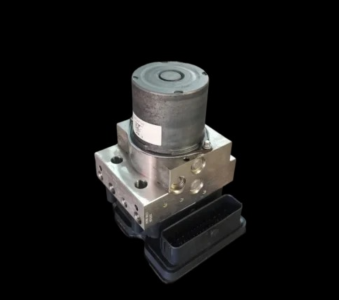ABS Warning Light: What It Tells You and Why You Shouldn’t Ignore It
https://www.sinspeed.co.uk/category/abs-ecus/
Today’s vehicles are smarter and safer than ever, equipped with systems that monitor everything from engine performance to tire pressure. One of the most important safety indicators is the ABS warning light, and when it turns on, it’s a sign that your vehicle’s Anti-lock Braking System (ABS) may not be functioning as it should.
While it’s easy to overlook dashboard lights—especially if your car feels like it’s running fine—the ABS warning light should never be ignored. Understanding what it means, why it turns on, and how to respond can make all the difference when you’re on the road.
What Is ABS and Why Is It Important?
ABS stands for Anti-lock Braking System, a vital safety feature that prevents your wheels from locking up during hard braking. This helps you maintain steering control in emergency situations or on slippery roads.
Without ABS, slamming on the brakes—especially on wet or icy surfaces—can cause the wheels to skid and the car to slide out of control. ABS helps avoid this by automatically pulsing the brakes, allowing you to slow down safely while maintaining direction and grip.
When the ABS Warning Light Turns On
When you first start your vehicle, all the dashboard lights briefly come on as part of a system check. The ABS light typically turns off within a few seconds. If it stays illuminated, or comes on while driving, that’s a sign of a problem.
Here’s what it means:
The ABS system has detected a fault and has disabled itself.
Your standard braking system is still operational, but you no longer have the added safety of ABS.
The vehicle is now more vulnerable to skidding, especially during sudden stops or on poor road surfaces.
Common Causes of the ABS Warning Light
The ABS system is made up of sensors, wiring, a control module, and hydraulic valves. A failure in any of these parts can trigger the warning light. Here are the most common reasons:
1. Wheel Speed Sensor Issues
Each wheel has a speed sensor that tracks its rotation. These sensors send data to the ABS module. If one fails or becomes dirty, the system may shut down to avoid giving false readings.
2. Damaged Wiring or Connections
Road debris, corrosion, or even rodents can damage the wires connected to the sensors, breaking communication between the wheels and the ABS controller.
3. Low Brake Fluid Levels
If brake fluid is low due to a leak or worn brake components, it can trigger the ABS light. Brake fluid is essential for the system’s hydraulic pressure and safe braking.
4. Faulty ABS Module
The module processes data from the sensors and controls the braking pulses. If it malfunctions due to age or internal failure, it can cause the ABS light to come on.
https://www.sinspeed.co.uk/category/abs-ecus/
Today’s vehicles are smarter and safer than ever, equipped with systems that monitor everything from engine performance to tire pressure. One of the most important safety indicators is the ABS warning light, and when it turns on, it’s a sign that your vehicle’s Anti-lock Braking System (ABS) may not be functioning as it should.
While it’s easy to overlook dashboard lights—especially if your car feels like it’s running fine—the ABS warning light should never be ignored. Understanding what it means, why it turns on, and how to respond can make all the difference when you’re on the road.
What Is ABS and Why Is It Important?
ABS stands for Anti-lock Braking System, a vital safety feature that prevents your wheels from locking up during hard braking. This helps you maintain steering control in emergency situations or on slippery roads.
Without ABS, slamming on the brakes—especially on wet or icy surfaces—can cause the wheels to skid and the car to slide out of control. ABS helps avoid this by automatically pulsing the brakes, allowing you to slow down safely while maintaining direction and grip.
When the ABS Warning Light Turns On
When you first start your vehicle, all the dashboard lights briefly come on as part of a system check. The ABS light typically turns off within a few seconds. If it stays illuminated, or comes on while driving, that’s a sign of a problem.
Here’s what it means:
The ABS system has detected a fault and has disabled itself.
Your standard braking system is still operational, but you no longer have the added safety of ABS.
The vehicle is now more vulnerable to skidding, especially during sudden stops or on poor road surfaces.
Common Causes of the ABS Warning Light
The ABS system is made up of sensors, wiring, a control module, and hydraulic valves. A failure in any of these parts can trigger the warning light. Here are the most common reasons:
1. Wheel Speed Sensor Issues
Each wheel has a speed sensor that tracks its rotation. These sensors send data to the ABS module. If one fails or becomes dirty, the system may shut down to avoid giving false readings.
2. Damaged Wiring or Connections
Road debris, corrosion, or even rodents can damage the wires connected to the sensors, breaking communication between the wheels and the ABS controller.
3. Low Brake Fluid Levels
If brake fluid is low due to a leak or worn brake components, it can trigger the ABS light. Brake fluid is essential for the system’s hydraulic pressure and safe braking.
4. Faulty ABS Module
The module processes data from the sensors and controls the braking pulses. If it malfunctions due to age or internal failure, it can cause the ABS light to come on.
ABS Warning Light: What It Tells You and Why You Shouldn’t Ignore It
https://www.sinspeed.co.uk/category/abs-ecus/
Today’s vehicles are smarter and safer than ever, equipped with systems that monitor everything from engine performance to tire pressure. One of the most important safety indicators is the ABS warning light, and when it turns on, it’s a sign that your vehicle’s Anti-lock Braking System (ABS) may not be functioning as it should.
While it’s easy to overlook dashboard lights—especially if your car feels like it’s running fine—the ABS warning light should never be ignored. Understanding what it means, why it turns on, and how to respond can make all the difference when you’re on the road.
What Is ABS and Why Is It Important?
ABS stands for Anti-lock Braking System, a vital safety feature that prevents your wheels from locking up during hard braking. This helps you maintain steering control in emergency situations or on slippery roads.
Without ABS, slamming on the brakes—especially on wet or icy surfaces—can cause the wheels to skid and the car to slide out of control. ABS helps avoid this by automatically pulsing the brakes, allowing you to slow down safely while maintaining direction and grip.
When the ABS Warning Light Turns On
When you first start your vehicle, all the dashboard lights briefly come on as part of a system check. The ABS light typically turns off within a few seconds. If it stays illuminated, or comes on while driving, that’s a sign of a problem.
Here’s what it means:
The ABS system has detected a fault and has disabled itself.
Your standard braking system is still operational, but you no longer have the added safety of ABS.
The vehicle is now more vulnerable to skidding, especially during sudden stops or on poor road surfaces.
Common Causes of the ABS Warning Light
The ABS system is made up of sensors, wiring, a control module, and hydraulic valves. A failure in any of these parts can trigger the warning light. Here are the most common reasons:
1. Wheel Speed Sensor Issues
Each wheel has a speed sensor that tracks its rotation. These sensors send data to the ABS module. If one fails or becomes dirty, the system may shut down to avoid giving false readings.
2. Damaged Wiring or Connections
Road debris, corrosion, or even rodents can damage the wires connected to the sensors, breaking communication between the wheels and the ABS controller.
3. Low Brake Fluid Levels
If brake fluid is low due to a leak or worn brake components, it can trigger the ABS light. Brake fluid is essential for the system’s hydraulic pressure and safe braking.
4. Faulty ABS Module
The module processes data from the sensors and controls the braking pulses. If it malfunctions due to age or internal failure, it can cause the ABS light to come on.
0 Yorumlar
0 hisse senetleri
1K Views
0 önizleme


